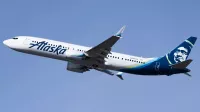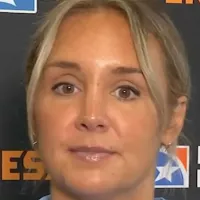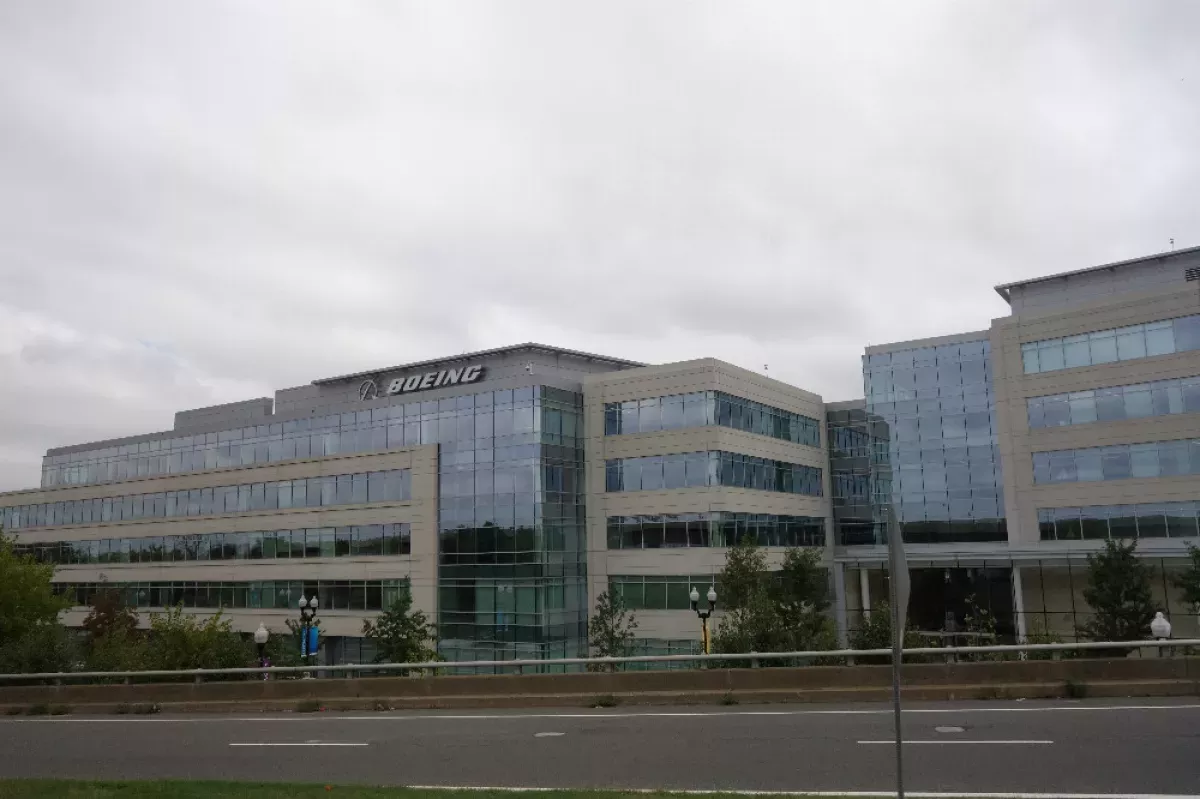The Boeing Company is a multinational corporation and one of the world's largest aerospace manufacturers. Founded in 1916 by William E. Boeing in Seattle, it designs, manufactures, and sells airplanes, rotorcraft, rockets, satellites, and missiles, while also offering leasing and product support. A major defense contractor (fourth-largest globally in 2022), Boeing is the largest exporter in the United States by dollar value. The modern corporation was formed through a merger with McDonnell Douglas in 1997.
July 15, 1916: Boeing Founded
On July 15, 1916, William E. Boeing founded The Boeing Company in Seattle, Washington, marking the beginning of the aerospace manufacturer.
1916: Pacific Aero Products Company Founded
In 1916, William E. Boeing founded Pacific Aero Products Company in Seattle, Washington, marking the start of what would become The Boeing Company.
1917: Boeing Airplane Company Renamed
In 1917, Pacific Aero Products Company was renamed Boeing Airplane Company.
1928: Boeing Airplane & Transport Corporation Formed
In 1928, William Boeing formed the Boeing Airplane & Transport Corporation.
1929: United Aircraft and Transport Corporation Renamed
In 1929, Boeing Airplane & Transport Corporation was renamed United Aircraft and Transport Corporation, which acquired several aircraft makers.
1931: United Airlines Formed
In 1931, the United Aircraft and Transport Corporation merged its four smaller airlines into United Airlines.
1934: Boeing Airplane Company Re-established
In 1934, aircraft manufacturing was required to be separate from air transportation, leading to the re-establishment of Boeing Airplane Company as one of three major groups.
1960: Acquisition of Vertol Aircraft Corporation
In 1960, Boeing acquired Vertol Aircraft Corporation, then the largest independent manufacturer of helicopters, expanding its capabilities.
1995: Partnership to Create Sea Launch
In 1995, Boeing partnered with Russian, Ukrainian, and Anglo-Norwegian organizations to create Sea Launch, providing commercial launch services for satellites.
December 1996: Merger Announcement with McDonnell Douglas
In December 1996, Boeing announced its intention to merge with McDonnell Douglas, a significant consolidation in the aerospace industry.
August 1, 1997: Merger with McDonnell Douglas
On August 1, 1997, Boeing merged with McDonnell Douglas, resulting in the formation of the present-day corporation.
August 4, 1997: Completion of Merger with McDonnell Douglas
On August 4, 1997, Boeing's merger with McDonnell Douglas was completed, forming a new, larger aerospace corporation after regulatory approval with conditions from the European Commission.
2000: Acquisition of Hughes Electronics Satellite Segment
In 2000, Boeing acquired the satellite segment of Hughes Electronics, further expanding its space-related business.
2005: Spirit AeroSystems Established
In 2005, Spirit AeroSystems was established when Boeing spun-off its Wichita division to an investment firm.
2006: Boeing paid settlement for misconduct
In 2006, Boeing agreed to pay US$615 million to settle instances of misconduct, including illegal hiring of government officials and improper use of proprietary information.
2006: Release of UCLA Study on Contamination
In 2006, a study by the UCLA Center for Environmental Risk Reduction revealed that Boeing's Santa Susana Field Laboratory was contaminated with toxic and radioactive waste.
2007: Testing of Biofuels
As of 2007, Boeing had tested six fuels from companies like Tecbio and Aquaflow Bionomic, with plans to test 20 fuels in total.
June 2008: Joined Algal Biomass Organization
In June 2008, Boeing joined the Algal Biomass Organization (ABO) along with other aviation-related members.
December 30, 2008: Air New Zealand and Boeing Complete Biofuel Test Flight
On December 30, 2008, Air New Zealand and Boeing completed a two-hour test flight using a 50–50 mixture of biofuel with Jet A-1 in a Rolls-Royce RB-211 engine of a 747–400. The engine was then studied to identify any differences between the Jatropha blend and regular Jet A1, and no effects on performances were found.
2008: Boeing benefited from loan guarantees
In 2008, Boeing benefited from over US$10 billion of long-term loan guarantees from the Export-Import Bank of the United States, helping finance the purchase of their commercial aircraft in countries including Brazil, Canada, Ireland, and the United Arab Emirates.
2008: Boeing Ranked Second on Top 100 US Federal Contractors
In 2008, Boeing was second on the list of Top 100 US Federal Contractors, with contracts totaling US$22 billion.
2008: Boeing Lays off Workers
In December 2011, Public Campaign criticized Boeing for laying off 14,862 workers since 2008, despite making a profit of US$9.7 billion.
2008: Obama Biggest Recipient of Campaign Contributions from Boeing
In the 2008 presidential election, Barack Obama was the biggest recipient of campaign contributions from Boeing employees and executives, hauling in US$197,000.
2008: Last Boeing Worker Strike Before 2024
The Boeing worker strike that began on September 13, 2024, marked the first strike by Boeing workers since 2008.
2009: Boeing Spent Millions on Lobbying Expenditures
In 2009, Boeing spent US$16.9 million on lobbying expenditures.
2009: Boeing Ranked Second on Top 100 US Federal Contractors
In 2009, Boeing was second on the list of Top 100 US Federal Contractors, with contracts totaling US$23 billion.
2009: Boeing profited from Israeli weapons contracts
Research has estimated Boeing made between $50 billion to $100 billion in revenue via Israeli weapons contracts from 2009 through 2022.
2010: Boeing Increased Operating Cash Flow
Between 2010 and 2018, Boeing increased its operating cash flow from $3 to $15.3 billion, sustaining its share price, by negotiating advance payments from customers and delaying payments to its suppliers.
2010: Boeing Increases Executive Pay
In December 2011, Public Campaign criticized Boeing for increasing executive pay by 31% to US$41.9 million in 2010 for its top five executives, despite making a profit of US$9.7 billion.
December 2011: Public Campaign Criticizes Boeing for Lobbying and Tax Rebates
In December 2011, the non-partisan organization Public Campaign criticized Boeing for spending US$52.29 million on lobbying and not paying taxes from 2008 to 2010, instead getting US$178 million in tax rebates, despite making a profit of US$9.7 billion, laying off 14,862 workers since 2008, and increasing executive pay by 31% to US$41.9 million in 2010 for its top five executives.
2011: Average Boeing Salary Reported
In 2011, the average salary at Boeing was $76,784, as reported by former employees.
February 2012: Boeing Partners with Insight Labs for Corporate Citizenship
In February 2012, Boeing Global Corporate Citizenship partnered with the Insight Labs to develop a new model for foundations to more effectively lead the sectors they serve.
2013: Boeing Spent Billions on Dividends and Stock Buybacks
From 2013 to 2019, Boeing spent over $60 billion on dividends and stock buybacks, twice as much as the development costs of the 787.
2013: Boeing secured highest-ever state tax breaks
In 2013, Boeing secured the highest-ever tax breaks at the state level.
2017: Cleanup Agreement with EPA
In 2017, Boeing agreed to a cleanup agreement with the EPA regarding the contamination at the Santa Susana Field Laboratory.
2017: Boeing Signs Deal with Saudi Arabia
In 2017, Boeing signed a deal with Saudi Arabia which included Saudi Arabia buying military aircraft and guided missile systems.
2018: Boeing Increased Operating Cash Flow
Between 2010 and 2018, Boeing increased its operating cash flow from $3 to $15.3 billion, sustaining its share price, by negotiating advance payments from customers and delaying payments to its suppliers.
2018: First European Factory Opened
In 2018, Boeing opened its first factory in Europe at Sheffield, UK, alongside a research partnership with the University of Sheffield.
2018: First 737 MAX Crash
In 2018, the first of two Boeing 737 MAX narrow-body passenger airplanes crashed, with no survivors.
October 2019: Roles of Chair and CEO were Separated
In October 2019, the roles of chair of the board and CEO were separated at Boeing.
2019: Boeing Spent Billions on Dividends and Stock Buybacks
From 2013 to 2019, Boeing spent over $60 billion on dividends and stock buybacks, twice as much as the development costs of the 787.
2019: Second 737 MAX Crash and Grounding
In 2019, a second Boeing 737 MAX narrow-body passenger airplane crashed, leading to aviation regulators and airlines around the world grounding all 737 MAX airliners.
2019: Ethiopian Airlines Flight 302 Crash
The Ethiopian Airlines Flight 302 crash in 2019 was a significant event associated with the Boeing 737 MAX controversies.
January 25, 2020: Maiden Flight of the Boeing 777X
On January 25, 2020, the Boeing 777X, Boeing's largest capacity twin jet, made its maiden flight, but also experienced problems.
May 2020: Job Cuts Due to COVID-19 Pandemic
In May 2020, Boeing cut over 12,000 jobs due to the drop in air travel during the COVID-19 pandemic.
June 2020: FAA Finds 737 MAX Defects
In June 2020, the Federal Aviation Administration (FAA) found several 737 MAX defects that Boeing had deferred to fix, violating regulations.
July 2020: Losses Reported and Further Cuts Planned
In July 2020, Boeing reported a $2.4 billion loss due to the pandemic and Boeing 737 MAX groundings, leading to plans for further job and production cuts.
August 18, 2020: CEO Announces Further Job Cuts
On August 18, 2020, Boeing's CEO, Dave Calhoun, announced further job cuts in response to ongoing financial pressures.
September 2020: U.S. House Investigation Findings
In September 2020, the U.S. House of Representatives concluded its investigation, citing instances where Boeing dismissed employee concerns and prioritized budget constraints over safety with the 737 MAX.
October 28, 2020: Significant Layoffs Announced
On October 28, 2020, Boeing laid off nearly 30,000 employees amid increasing financial losses due to the COVID-19 pandemic.
2020: Report on Carbon Dioxide Emissions
In 2020, Boeing reported that each jet it delivered would add one million tons of carbon dioxide to the Earth's atmosphere, on average.
2020: Fortune Rankings
In 2020, Boeing was ranked 54th on the Fortune 500 list and 121st on the Fortune Global 500 list.
2020: Boeing's Second Quarter Revenue Slumps Due to Pandemic
In 2020, Boeing's second quarter revenue was $11.8 billion as a result of the pandemic slump.
2020: Corporate Culture Clash Report
In 2020, Quartz reported a clash of corporate cultures after the Boeing-McDonnell Douglas merger, potentially contributing to the 737 MAX crisis.
January 7, 2021: Boeing Settles Fraud Charges
On January 7, 2021, Boeing settled to pay over $2.5 billion after being charged with fraud over the company's hiding of information from safety regulators regarding the 737 MAX crashes.
2021: Boeing misconduct settlements
Between 1995 and early 2021, Boeing agreed to pay US$4.3 billion to settle 84 instances of misconduct.
2021: Delay in First Delivery of 777X
Following an incident during flight testing in 2021, the estimated first delivery of the Boeing 777X was delayed until 2024.
2021: Boeing Sales in 2021
In 2021, Boeing recorded $62.3 billion in sales.
2021: Boeing's Second Quarter Revenue Increases
In 2021, due to higher sales in other divisions and an influx in deliveries of commercial jetliners, Boeing's second quarter revenue increased by 44%, reaching nearly $17 billion.
May 5, 2022: Boeing Announces Headquarters Move to Arlington, Virginia
On May 5, 2022, Boeing announced that it would be moving its headquarters from Chicago to Arlington, Virginia in the Washington, D.C. metropolitan area. Additionally, it plans to add a research and technology center in Northern Virginia.
July 19, 2022: Renewed Partnership with Mitsubishi
On July 19, 2022, Boeing announced a renewed partnership with Mitsubishi to produce carbon-neutral and sustainable solutions.
September 2022: Further Payment Ordered for Misleading Investors
In September 2022, Boeing was ordered to pay a further $200 million over charges of misleading investors about safety issues related to the 737 MAX crashes.
2022: Boeing is Headed by President who also serves as CEO
As of 2022, Boeing is headed by a President who also serves as the chief executive officer.
2022: Fourth-Largest Defense Contractor
In 2022, Boeing was recognized as the fourth-largest defense contractor globally based on revenue, and the largest exporter in the United States by dollar value.
2022: "Downfall: The Case Against Boeing" Released
In 2022, Netflix released an exposé, "Downfall: The Case Against Boeing", suggesting the Boeing-McDonnell Douglas merger contributed to the 737 MAX crashes due to workplace morale issues.
2022: Documentary Film "Downfall: The Case Against Boeing" Released
In 2022, Rory Kennedy made a documentary film, "Downfall: The Case Against Boeing", streamed by Netflix, discussing the 21st-century history of Boeing.
2022: Further Technical Problems and Delay
In 2022, further technical problems were discovered in the Boeing 777X aircraft, delaying its release again until 2025.
2022: Boeing profited from Israeli weapons contracts
Research has estimated Boeing made between $50 billion to $100 billion in revenue via Israeli weapons contracts from 2009 through 2022.
February 2023: Plans for Layoffs Announced
In February 2023, Boeing announced plans for laying off approximately 2,000 workers from finances and human resources.
March 2023: Controversial Court Filing on Victim Suffering
In March 2023, Boeing disputed in court filings that the victims of Ethiopian Airlines Flight 302 (2019 crash) experienced any pain and suffering, sparking controversy.
May 2023: Acquisition of Wisk Aero
In May 2023, Boeing acquired autonomous eVTOL air taxi startup Wisk Aero.
2023: Corporate Headquarters Location
As of 2023, Boeing's corporate headquarters are located in Arlington County, Virginia.
2023: Boeing sent "smart" bombs to Israel during the Gaza war
In 2023, it was reported that Boeing sent 1,000 small diameter "smart" bombs for the first week of Israeli air attacks on Gaza, which were shipped from a US Air Force base by Israeli Air Force.
2023: Boeing's Second Quarter Revenues
In the second quarter of 2024, Boeing's revenues decreased 15 percent to $16.9 billion compared to the same time period in 2023. Plane deliveries in 2023 was 136.
January 5, 2024: Alaska Airlines Flight 1282 Incident
On January 5, 2024, on Alaska Airlines Flight 1282, a door plug blowout occurred on a 737 MAX 9 jetliner, leading to an emergency landing and subsequent grounding of 171 aircraft.
January 2024: Shareholder Proposal to Relocate Headquarters
After the January 2024 Alaska Airlines Flight 1282 incident, a shareholder proposed relocating Boeing's corporate headquarters back to the Seattle area, which was dismissed by the board.
March 2024: Justice Department Investigation and Executive Departures
In March 2024, the Justice Department opened a criminal investigation into the Alaska Airlines blowout, and CEO Dave Calhoun and board chairman Larry Kellner announced their resignations.
June 2024: Agreement to Re-acquire Spirit AeroSystems
In June 2024, Boeing agreed to re-acquire Spirit AeroSystems, its longtime supplier of airplane parts, closing the deal on June 30 for $4.7 billion.
July 2024: Boeing announced a new CEO, Kelly Ortberg
In July 2024, Boeing announced a new CEO, Kelly Ortberg.
August 8, 2024: New CEO meets with FAA Administrator
On August 8, 2024, Kelly Ortberg, the new CEO of Boeing, met with FAA Administrator Michael Whitaker to discuss the company's future direction. Ortberg has communicated his commitment to reinforcing Boeing's position as an industry leader and has outlined his vision for the company's continued success.
September 12, 2024: Rejection of Contract Offer and Vote to Strike
On September 12, 2024, Boeing machinist workers rejected a contract offer endorsed by the union's bargaining committee, with 96% voting to strike.
October 12, 2024: Plans to Cut Jobs and Delay Airliner Deliveries
On October 12, 2024, Boeing announced plans to cut 17,000 jobs and delay the first deliveries of its 777X airliner by a year, recording $5 billion in losses in the third quarter of the year.
November 1, 2024: IAM Endorses Improved Contract Offer
On November 1, 2024, the IAM endorsed an improved contract offer, including a 38% pay rise over four years, a $12,000 ratification bonus, and the reinstatement of an annual bonus scheme.
November 5, 2024: Workers Accept Pay Deal, Ending Strike
On November 5, 2024, Boeing workers accepted the improved pay deal, ending a seven-week-long strike.
2024: Boeing's Aircraft Deliveries Lowest Since COVID-19 Pandemic
In 2024, Boeing delivered just 348 aircraft to its customers, its lowest output since the COVID-19 pandemic. Boeing ended the year with a backlog of 5,595 unfilled orders.
2024: Protests and Calls for Divestment from Boeing
In 2024, students on hunger strike at Brown University named Boeing among the list of corporations to divest from. Five protestors, in opposition to Boeing sales to Israel, were arrested on felony charges after blocking entrances to a Boeing facility in Heath, Ohio. The student union at Washington University in St. Louis passed a resolution calling on the university to divest from Boeing.
2024: Initial Delayed Delivery Date of the Boeing 777X
In 2024, the Boeing 777X was initially slated for delivery following delays, however, more technical problems were discovered.
2024: Boeing's Second Quarter Revenues Decreased
In the second quarter of 2024, Boeing's revenues decreased 15 percent to $16.9 billion compared to 2023. The company's operating loss amounted to $1.39 billion and its net loss to $1.43 billion, while plane deliveries fell to 92 (from 136 in 2023).
March 2025: Boeing Awarded Contract for U.S. Air Force Fighter
In March 2025, Boeing was awarded a contract to build the U.S. Air Force's most sophisticated fighter, known as Next Generation Air Dominance, in a contract worth more than $20 billion.
2025: Delayed Release Date of the Boeing 777X
In 2025, the release of the Boeing 777X was delayed again, six years after the original date.
Mentioned in this timeline

Barack Obama the th U S President - was the...
Saudi Arabia officially the Kingdom of Saudi Arabia KSA is...

The Boeing MAX is the latest iteration of the Boeing...

Seattle is the most populous city in Washington state and...
Virginia a state in the Southeastern and Mid-Atlantic US lies...

Chicago is the most populous city in Illinois and the...
Trending
19 minutes ago Julian Reese Joins Washington Wizards on Two-Way Contract, Making NBA Debut.
19 minutes ago Missouri Pick 3 and Powerball: Winning Numbers Revealed for February 28, 2026

19 minutes ago Kaiya Wynn's departure: Senior Day snub as 'breaking point' from Lady Vols.

1 hour ago Anhelina Kalinina Runner-Up at Antalya WTA 125, WTA Megarasay Hotels Open 2

4 hours ago Marcus Smart shines with defensive prowess, racking up steals in Lakers' victory.

4 hours ago DeMar DeRozan Trade Rumors: Kings, Hawks Potential Suitors; NBA Picks Targeted
Popular

Hillary Diane Rodham Clinton is a prominent American politician lawyer...

Ken Paxton is an American politician and lawyer serving as...

Jesse Jackson is an American civil rights activist politician and...

Jim Carrey is a Canadian-American actor and comedian celebrated for...

Bill Clinton served as the nd U S President from...

XXXTentacion born Jahseh Dwayne Ricardo Onfroy was a controversial yet...
